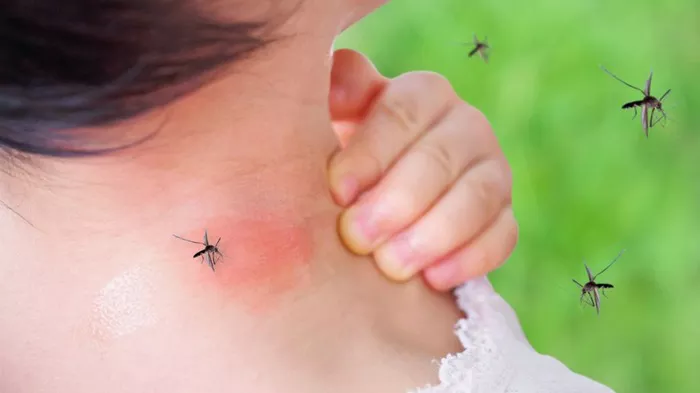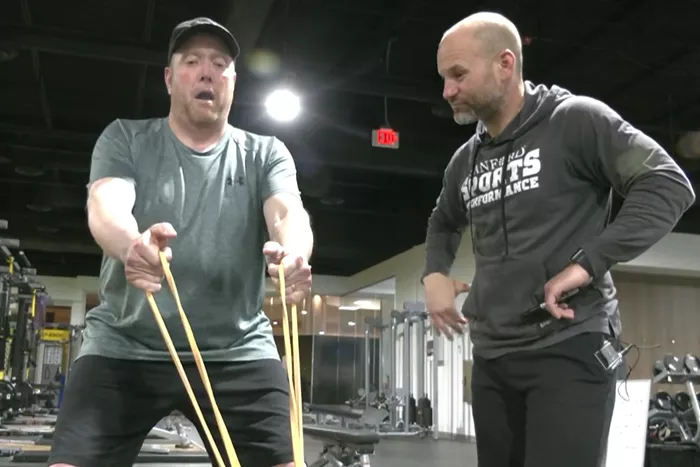Skeeter syndrome, a less commonly known yet significant allergic reaction to mosquito bites, is a condition that many people suffer from without realizing its true nature. Unlike the typical, mild itching and redness caused by mosquito bites, skeeter syndrome presents as severe local inflammation, intense itching, and other systemic symptoms. One of the most pressing questions for sufferers of this condition is: how long does the swelling last? In this comprehensive article, we will explore skeeter syndrome in detail, focusing on the duration of swelling, factors affecting it, and effective management strategies.
What is Skeeter Syndrome?
Skeeter syndrome is an allergic reaction to proteins found in the saliva of mosquitoes. When a mosquito bites, it injects saliva into the skin to prevent blood clotting, which enables it to feed. In individuals with skeeter syndrome, the immune system reacts aggressively to these proteins, leading to pronounced local and sometimes systemic reactions.
Symptoms of Skeeter Syndrome
The primary symptom of skeeter syndrome is severe swelling at the site of the bite, which can be accompanied by:
Redness and warmth around the bite area
Severe itching and pain
Blistering or development of a rash
Sometimes, systemic symptoms such as fever, nausea, and fatigue
These symptoms can be mistaken for an infection or other dermatological conditions, which can delay proper treatment.
Duration of Swelling
The duration of swelling caused by skeeter syndrome can vary significantly among individuals. On average, the swelling can last from several days to a couple of weeks. Understanding the factors that influence this duration is crucial for effective management.
Factors Influencing Swelling Duration
Individual Immune Response
The strength and nature of an individual’s immune response play a critical role in the duration of swelling. Some people have a more robust allergic reaction, which can prolong inflammation and associated symptoms.
Severity of the Reaction
The severity of the allergic reaction itself is a primary determinant. Mild reactions might result in swelling lasting a few days, whereas severe reactions could extend the duration to two weeks or more.
Location of the Bite
The location of the mosquito bite also impacts the duration of swelling. Bites in areas with thinner skin or where the skin is more sensitive, such as the face or joints, may result in more prolonged and severe swelling.
Number of Bites
Multiple mosquito bites in a concentrated area can exacerbate the immune response and prolong swelling. Each additional bite increases the amount of mosquito saliva proteins the immune system has to combat, leading to more extensive inflammation.
Secondary Infections
If the bite area becomes infected due to scratching or other factors, this can significantly extend the duration of swelling. Infected bites require more time to heal and may necessitate medical treatment.
Treatment and Management
Managing skeeter syndrome effectively involves both immediate treatment of symptoms and preventive measures to avoid mosquito bites in the future.
Immediate Treatments
Antihistamines
Oral antihistamines are commonly used to reduce allergic reactions and alleviate symptoms such as itching and swelling. Over-the-counter options include cetirizine, loratadine, and diphenhydramine.
Topical Corticosteroids
Applying topical corticosteroids to the affected area can help reduce inflammation and itching. Over-the-counter hydrocortisone creams are often effective, but more potent prescription options may be needed for severe reactions.
Cold Compresses
Cold compresses applied to the bite area can help reduce swelling and numb the area, providing temporary relief from pain and itching.
Oral Pain Relievers
Nonsteroidal anti-inflammatory drugs (NSAIDs) such as ibuprofen or acetaminophen can help manage pain and reduce inflammation.
Preventive Measures
Avoiding Mosquito Bites
Preventing mosquito bites is the most effective way to manage skeeter syndrome. Measures include:
Using insect repellent containing DEET, picaridin, or oil of lemon eucalyptus
Wearing long sleeves and pants, especially during peak mosquito activity times (dawn and dusk)
Using mosquito nets and screens in living areas
Eliminating standing water around the home to reduce mosquito breeding sites
Allergy Management
For individuals with severe reactions, consulting an allergist may be beneficial. Allergy specialists can provide tailored advice and potentially prescribe stronger medications or treatments.
See Also: Beware of Fake Vitamins: Could They Contribute to Weight Gain?
Long-Term Management
For those who frequently suffer from skeeter syndrome, long-term management strategies are necessary.
Immunotherapy
Immunotherapy, or allergy shots, may be an option for some individuals. This treatment involves gradually exposing the immune system to increasing amounts of the allergen to build tolerance over time. While typically used for more common allergies like pollen or pet dander, some allergists may offer immunotherapy for mosquito saliva proteins.
Regular Use of Antihistamines
For people living in mosquito-prone areas, taking daily antihistamines during peak mosquito season can help manage symptoms before they start.
Lifestyle Adjustments
Making lifestyle adjustments, such as avoiding outdoor activities during peak mosquito activity times and ensuring proper clothing and repellent use, can significantly reduce the frequency and severity of bites.
Complications and When to Seek Medical Help
While skeeter syndrome is primarily characterized by local allergic reactions, complications can arise that require medical attention.
Secondary Infections
Scratching mosquito bites can lead to secondary bacterial infections. Signs of infection include increased redness, warmth, pus, and fever. If an infection is suspected, medical treatment with antibiotics may be necessary.
Severe Allergic Reactions
Although rare, severe allergic reactions (anaphylaxis) can occur and are a medical emergency. Symptoms include difficulty breathing, swelling of the face or throat, rapid heartbeat, and dizziness. Immediate medical intervention is crucial in these cases.
Chronic Inflammation
In some cases, persistent or repeated bites can lead to chronic inflammation and scarring. Consultation with a dermatologist or allergist can help manage these long-term effects and prevent permanent skin damage.
Research and Future Directions
Ongoing research aims to better understand skeeter syndrome and develop more effective treatments.
Genetic Factors
Studies are exploring the genetic basis of allergic reactions, which could lead to more personalized treatment approaches for skeeter syndrome.
New Treatments
Research into new antihistamines, anti-inflammatory drugs, and biologics continues, with the goal of providing more effective and longer-lasting relief from symptoms.
Vaccine Development
Although still in the early stages, research into vaccines that could prevent allergic reactions to mosquito bites is promising. Such a vaccine would represent a significant advancement in managing skeeter syndrome and other mosquito-borne diseases.
Conclusion
Skeeter syndrome, though often overlooked, can significantly impact the quality of life for those who suffer from it. Understanding the duration of swelling and factors that influence it is crucial for effective management. By combining immediate treatments, preventive measures, and long-term management strategies, individuals can mitigate the effects of this condition. Ongoing research holds promise for even better treatments and potentially preventive measures in the future, offering hope to those affected by skeeter syndrome.
[inline_related_posts title=”You Might Be Interested In” title_align=”left” style=”list” number=”6″ align=”none” ids=”9831,9828,9720″ by=”categories” orderby=”rand” order=”DESC” hide_thumb=”no” thumb_right=”no” views=”no” date=”yes” grid_columns=”2″ post_type=”” tax=””]
































